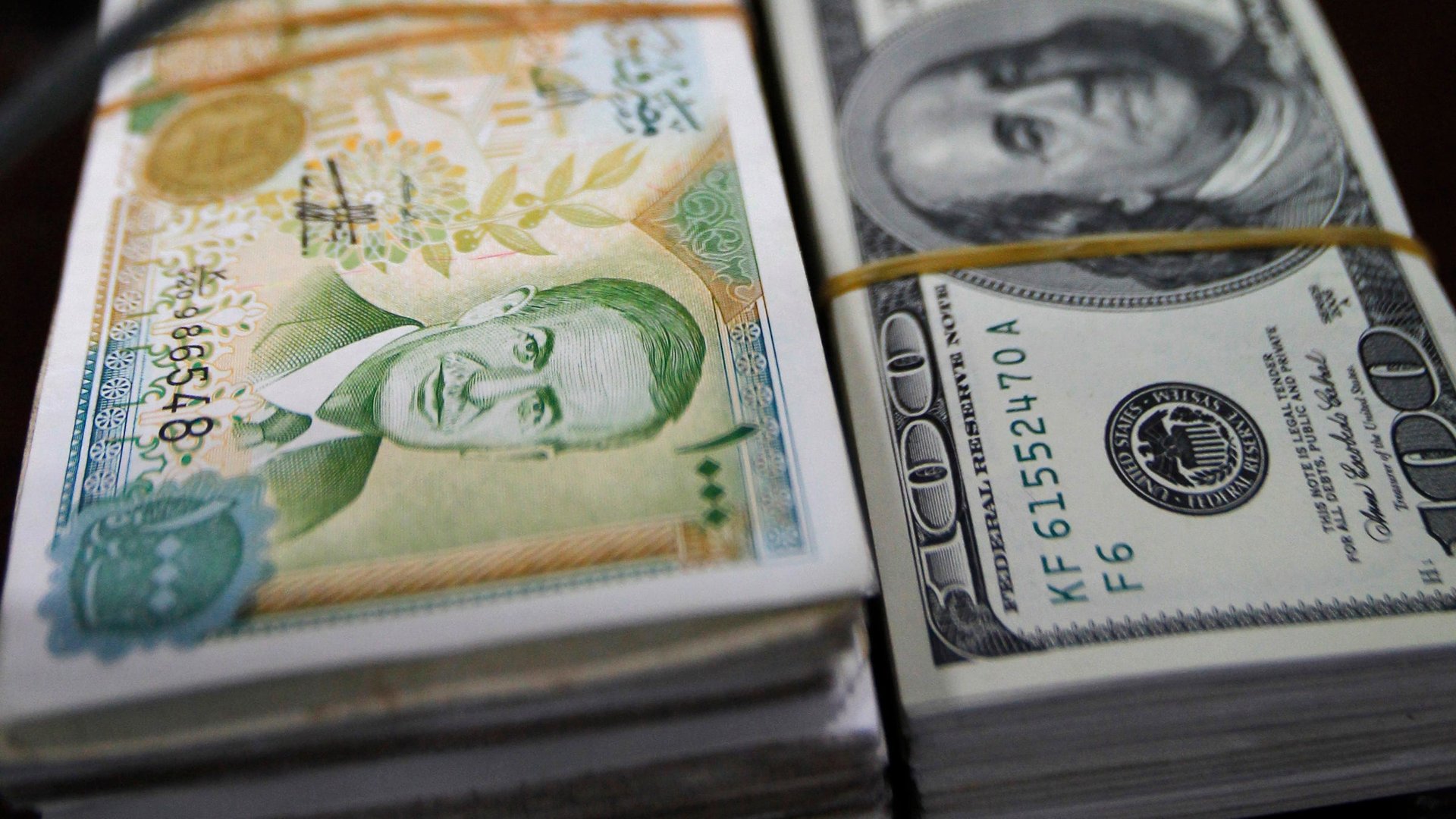The cost of a dollar in Syria: three years in jail
Having wrested the initiative back from rebel forces in the civil war that started in March 2011, Syrian president Bashar al-Assad is training his guns on a new enemy: the dollar.


Having wrested the initiative back from rebel forces in the civil war that started in March 2011, Syrian president Bashar al-Assad is training his guns on a new enemy: the dollar.
The prolonged civil war and subsequent Western sanctions that banned imports of Syrian oil wrecked the economy, pushed unemployment to 15%, sparked a surge in prices of essential commodities, and sent the Syrian pound crashing. The economic collapse triggered a nation-wide flight to the safety of the US dollar, with salaried workers, housewives, day laborers and even cab drivers trying to convert their savings to the greenback in the black market, weakening the pound still further. Now, Assad has announced limits on the use of the dollar and threatened traders with jail sentences to curb the growing dollarization of the economy.
A decree issued yesterday (Aug. 4) forbids the use of foreign currencies for any type of commercial transaction or cash settlement. Traders found guilty of violating it could face up to three years in jail and a fine equivalent to double the value of the payment. For transactions of over $5,000, the punishment could be up to 10 years with hard labor.
The Syrian pound, which hovered around 47 to the dollar before the conflict erupted in March 2011, now changes hands at around the 200 mark in the black market. In July, the black-market rate shot up above the 300 mark, forcing the central bank to intervene by selling dollars at around 170 to the pound. The official exchange rate is currently around the 100 level, but without official imports and exports, there’s no real market to determine (paywall) the value of the Syrian pound.
The weakness and volatility of the local currency have pushed up inflation and forced many businesses to price products in dollars. The Syrian central bank has not released inflation data since November 2012, but experts from Johns Hopkins University have estimated that Syria is experiencing annual inflation of 200%. The fall in the pound coupled with lack of access to oil supplies in the rebel-controlled areas has pushed up fuel prices from 44 pounds per liter a year ago to over 325 pounds in July. The government increased salaries by more than 40% during the crisis, but the fall in value of the pound has eroded buying power.
Syria’s allies—Iran, Russia and China—too are aiding efforts to resuscitate the economy and prop up the currency. The trio has extended a $500-million-a-month credit line for oil and food imports, and the Assad regime now conducts all its business (paywall) in rials, roubles, and renminbi.